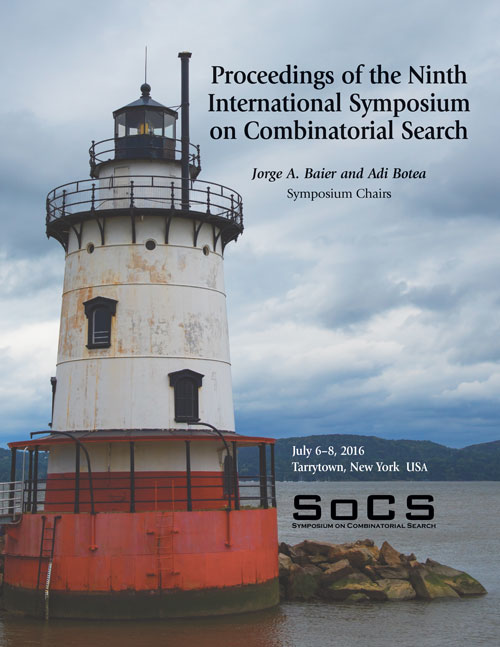A Hybrid Quantum-Classical Approach to Solving Scheduling Problems
DOI:
https://doi.org/10.1609/socs.v7i1.18390Keywords:
Quantum Computing, Decomposition, SchedulingAbstract
An effective approach to solving complex problems is to decompose them and integrate dedicated solvers for those subproblems. We introduce a hybrid decomposition that incorporates: (1) a quantum annealer that samples from the configuration space of a relaxed problem to obtain strong candidate solutions, and (2) a classical processor that maintains a global search tree and enforces constraints on the relaxed components of the problem. Our framework is the first to use quantum annealing as part of a complete search. We consider variants of our approach with differing amounts of guidance from the quantum annealer. We empirically test our algorithm and compare the variants on problems from three scheduling domains: graph-coloring-type scheduling, simplified Mars Lander task scheduling, and airport runway scheduling. While we were only able to test on problems of small sizes, due to the limitation of currently available quantum annealing hardware, the empirical results show that results obtained from the quantum annealer can be used for more effective search node pruning and to improve node selection heuristics when compared to a standard classical approach.

